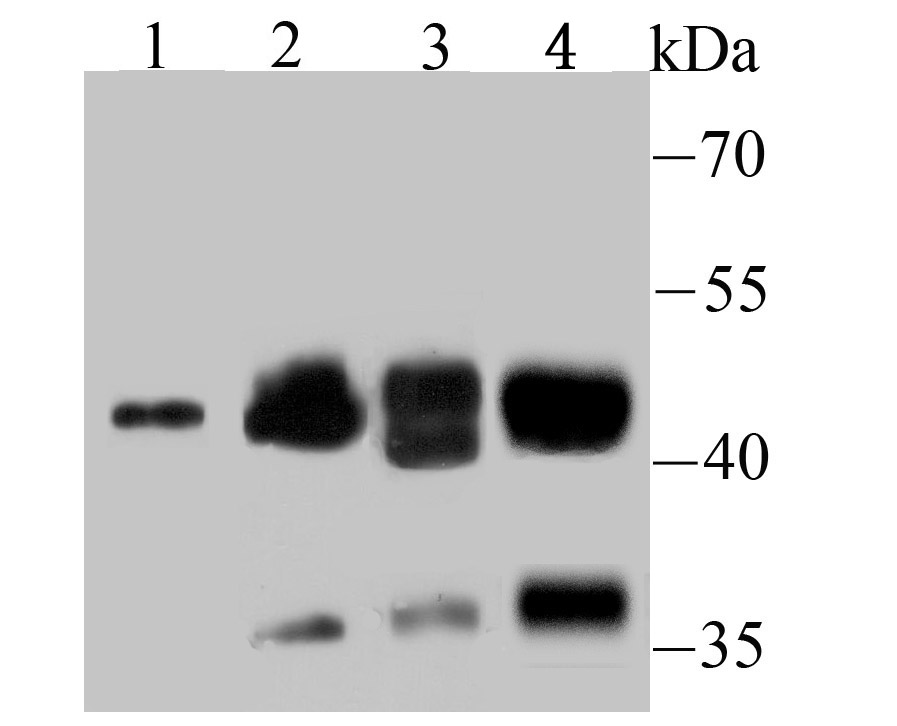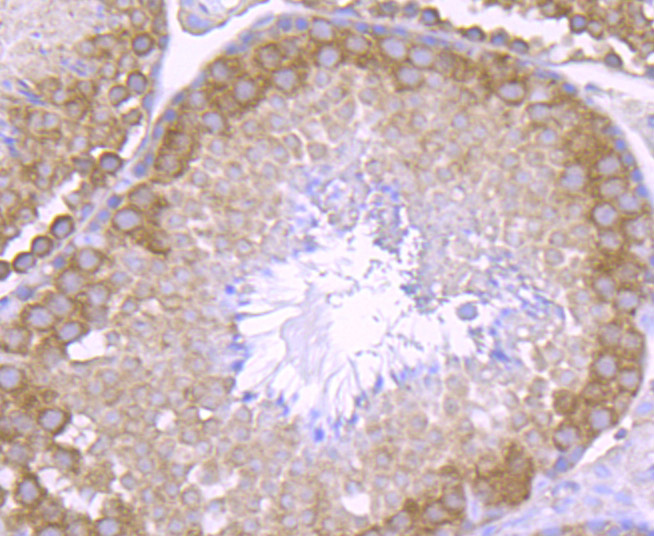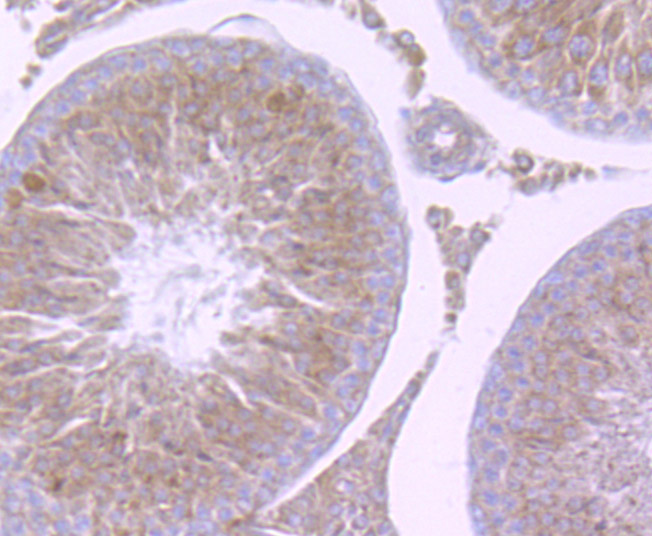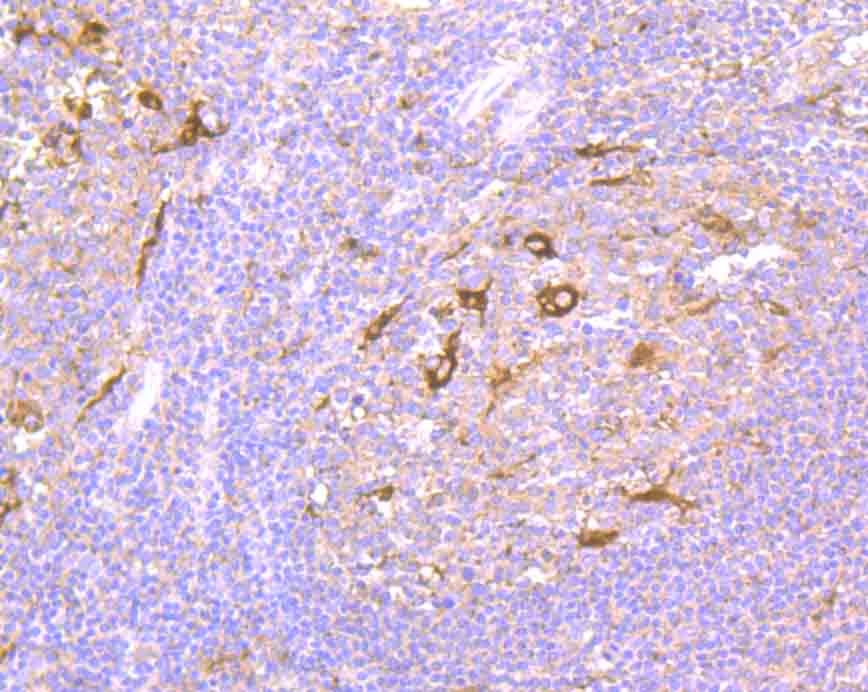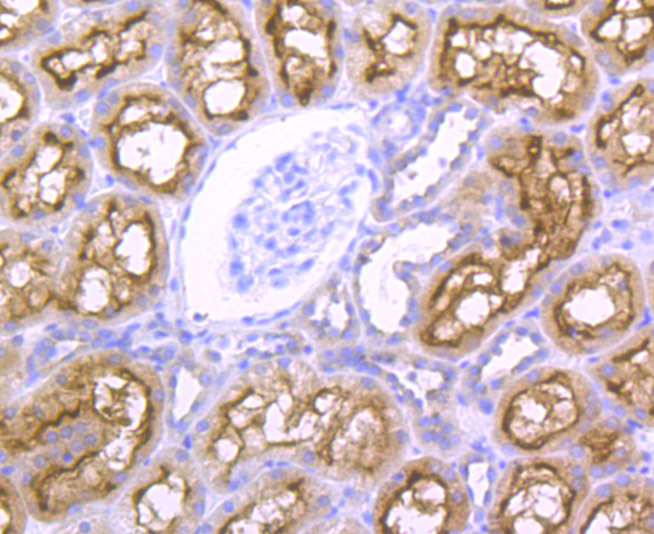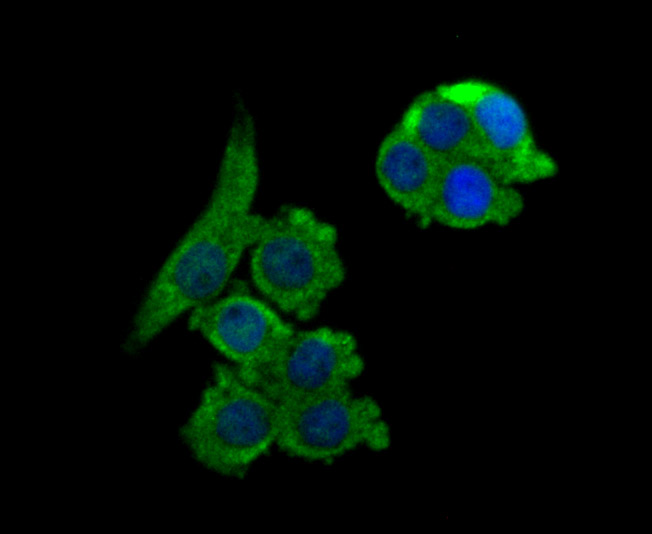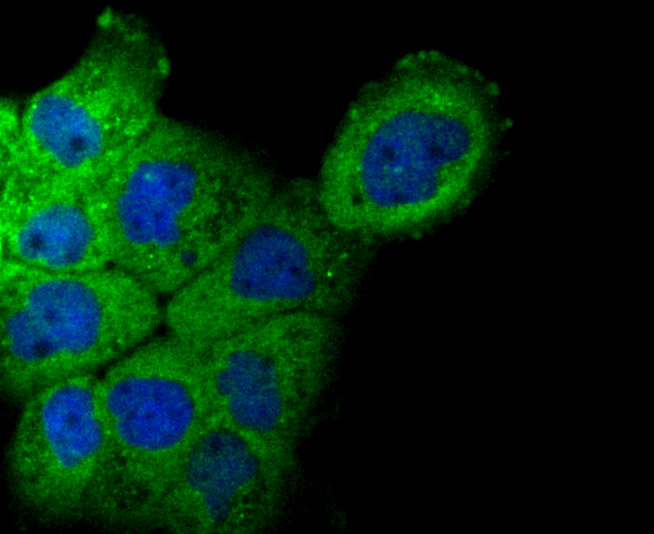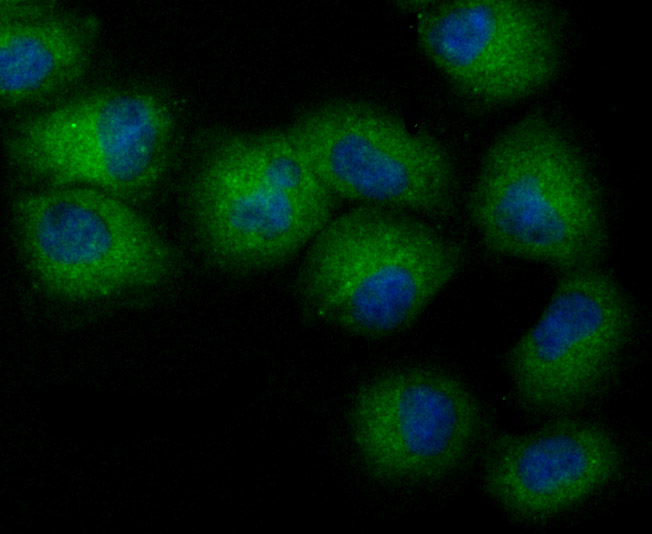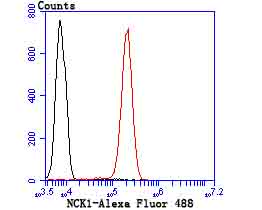The NCK family of SH2/SH3 adaptor proteins consists of two members, NCK1 (NCKα) and NCK2 (NCKβ), which couple tyrosine kinase signaling, including the EGF and PDGF receptor-pathways, to downstream signaling proteins. Specifically, overexpression of Nck1 in NIH/3T3 cells decreases DNA synthesis stimulated by EGF. Furthermore, the SH2 domain of NCK2 inhibits EGF- and PDGF-induced DNA synthesis. The SH3 domain of NCK binds a proline-rich domain on PAK, a known actin cytoskeleton regulator. The NCK protein thus mediates the interaction between PAK and RAC. The NCK2 protein binds human PDGFR-b (Tyr 1009); overexpression of Nck2 inhibits PDGF-induced membrane ruffling and lamellipod formation. Various growth factor receptors, cell surface antigens and adhesion molecules phosphorylate mammalian NCK1 and NCK2. The human NCK1 and NCK2 genes map to chromosomes 3q22.3 and 2q12.2, respectively.

